Hearing Test
Forty-eight million Americans have a hearing loss problem, and a third of them aren't treating it in any way. Untreated hearing loss can have cognitive and physical consequences down the road.
We suspect that the very idea of confronting a potential hearing loss may be the most significant barrier to hearing testing for most people. While we understand, we also know that knowledge is power. The best place to start is by scheduling a hearing test and consultation with us at HEARtoday.
For those who are considering taking charge of their hearing loss, we offer comprehensive hearing tests. While they are fast and painless, those who do not understand precisely what they involve may be understandably nervous! Here's what to expect from your hearing test and consultation at HEARtoday.
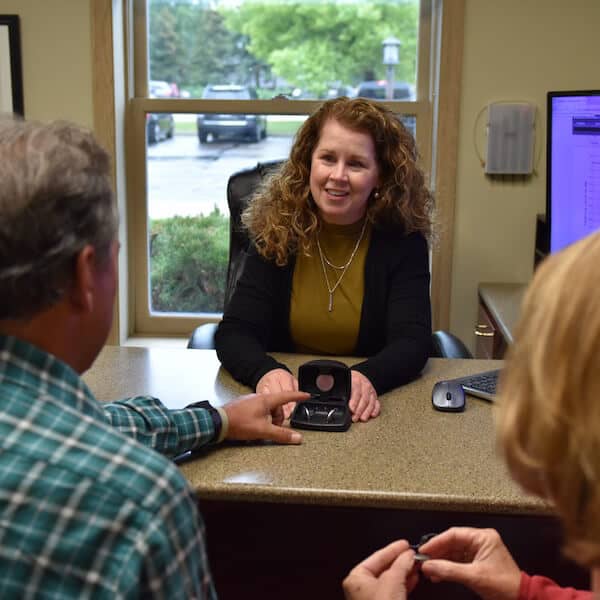
Consultation
We start with a discussion about your lifestyle and listening needs. We may focus on various aspects of your hearing during this conversation, such as
- times and places where you have the most trouble hearing
- what your work requires in terms of hearing
- any personal or family medical history that may be relevant to your current hearing abilities
Some drugs and sensitivity to loud noise can affect your hearing (whether on the job or recreationally). Some hearing disorders could be hereditary, so learning whether your parents or other family members have had this experience is beneficial. We will ask you to fill out a full medical history before you come. If we notice a hearing loss, this consultation will help us put together a suitable treatment plan.
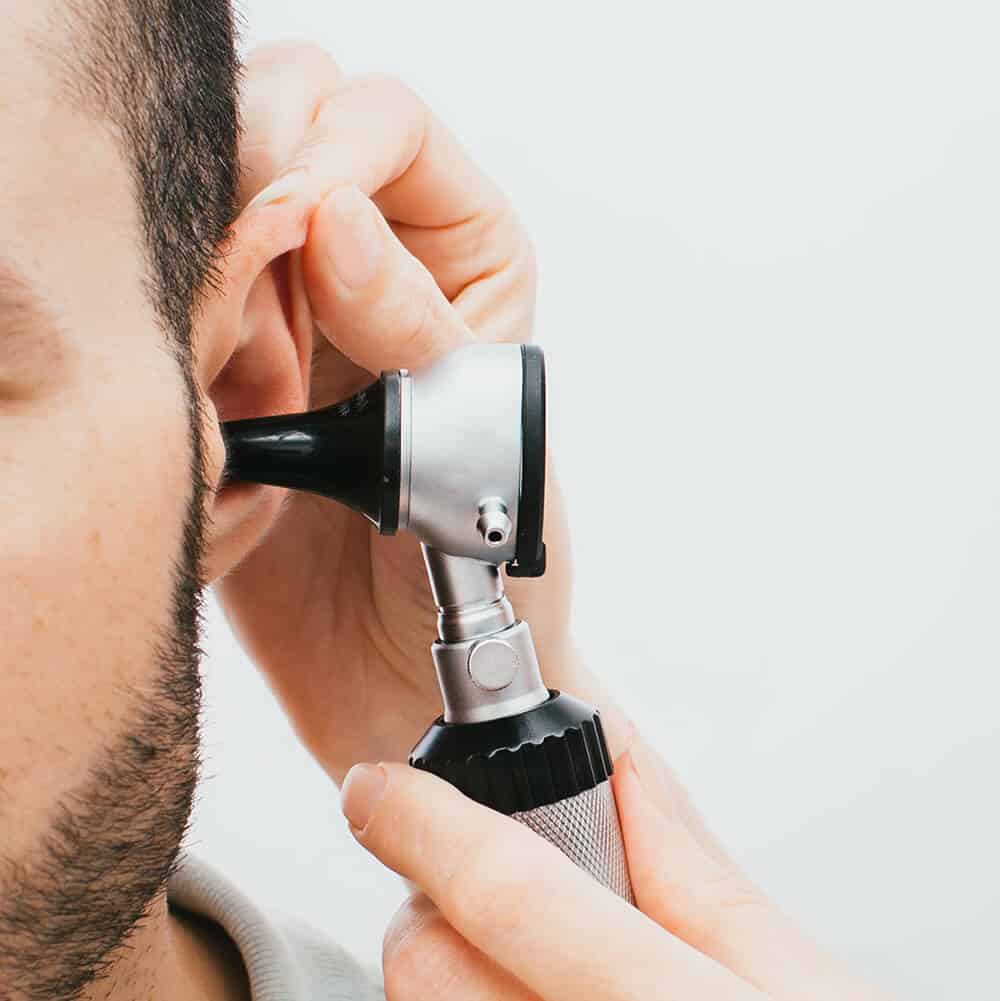
Physical Examination of Your Ears
Using a device called an otoscope, we will conduct a physical examination of your outer ear. The otoscope is a medical device with a cone-shaped head that provides a well-lit and magnified view of your ear canal to your audiologist. They help us to detect inflammation and obstruction, as well as punctures or other eardrum problems.
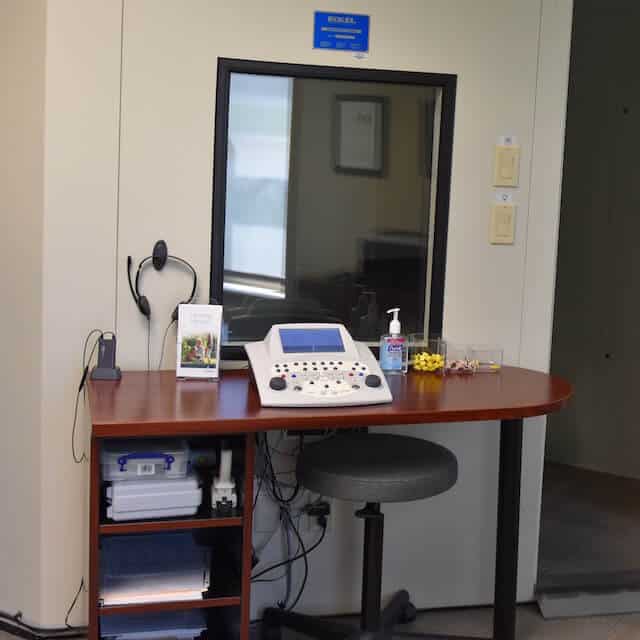
Hearing Tests
Your hearing test is done in a sound-treated room built to keep out other sounds. You will wear headphones or soft earplugs attached to the audiometer. We will talk to you through the exam with instructions.
Here are the most common hearing tests you can expect during an examination:
Pure Tone Audiometry: A sequence of tones will play at varying pitches and different volumes. When you hear them, you will be asked to trigger a button or lift your hand. At each frequency, the procedure tests the very softest sounds you can hear.
Speech Comprehension: Another part of most hearing assessments is a speech test; instead of pure tones, it plays recorded or live speech. It measures the softest level of conversation you can hear. You'll be asked to repeat snippets of speech that you hear.
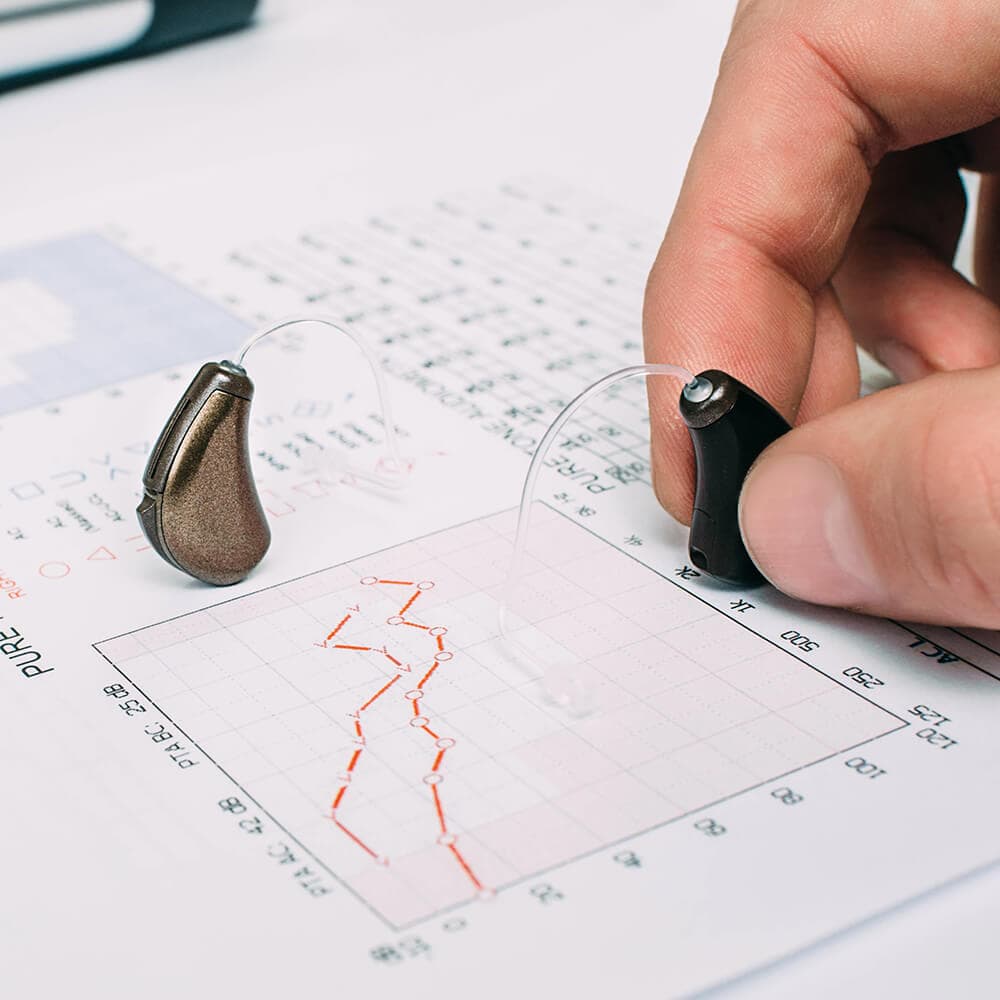
Reviewing Your Results
We will thoroughly explain your audiogram with you and your family. An audiogram is a visual illustration of your hearing ability, which provides you with details such as the various pitches you can hear. Each ear is independently checked and graphed. The audiogram can include details on the type, configuration, and degree of hearing loss you encounter if a hearing loss is present. This will help assess the treatment that best fits your hearing needs.
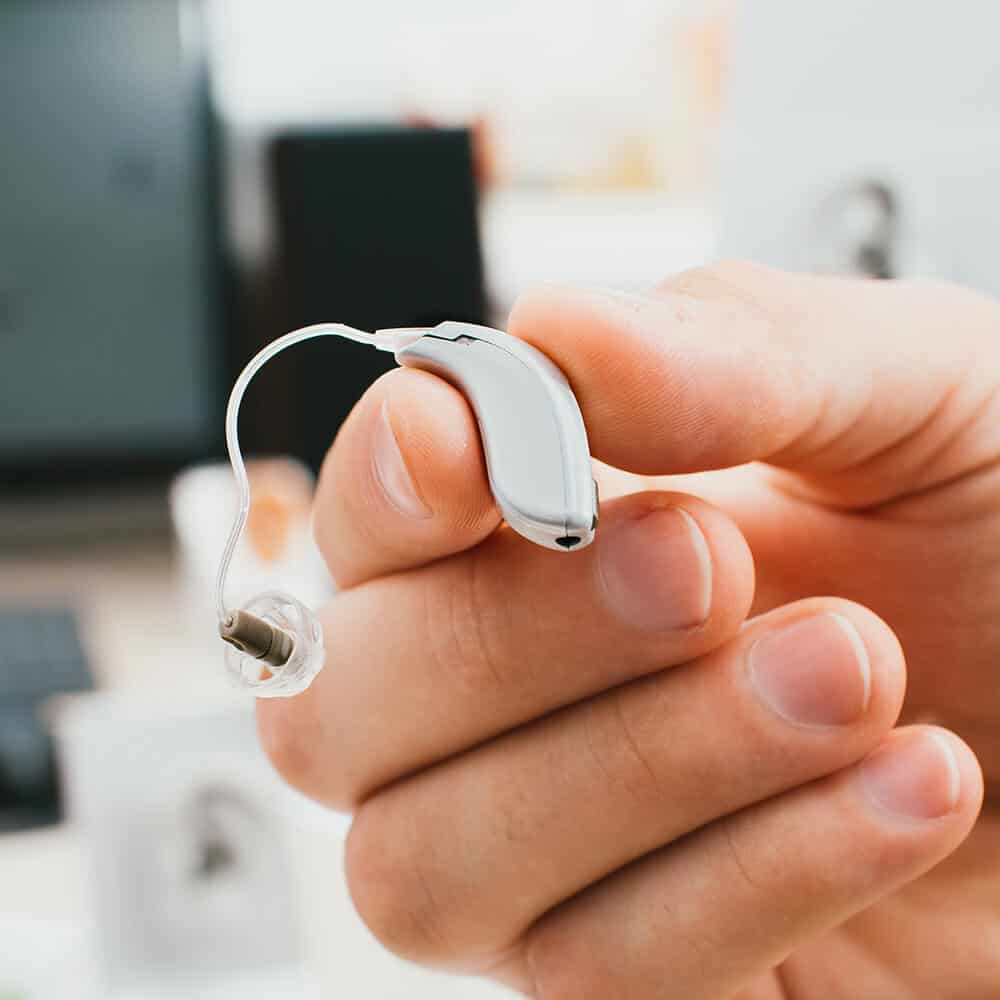
Hearing Loss Treatment
The most common treatment type for hearing deficit is a hearing aid. We will begin to discuss the various hearing options available to you—these range from the in-canal options (that are invisible) to the Bluetooth compatible, rechargeable devices with motion and tap sensors. We will work together to find the best options that suit your budget and lifestyle.
Schedule an Appointment Today!
I know many are initially apprehensive about dealing with their hearing loss, but the earlier you treat your hearing loss, the sooner you can go back to reconnecting with those around you that you love. The comment I hear the most from my patients is how easy I make the process of hearing better and they wish they had done it sooner.
To begin the process toward better hearing, contact us at HEARtoday!
